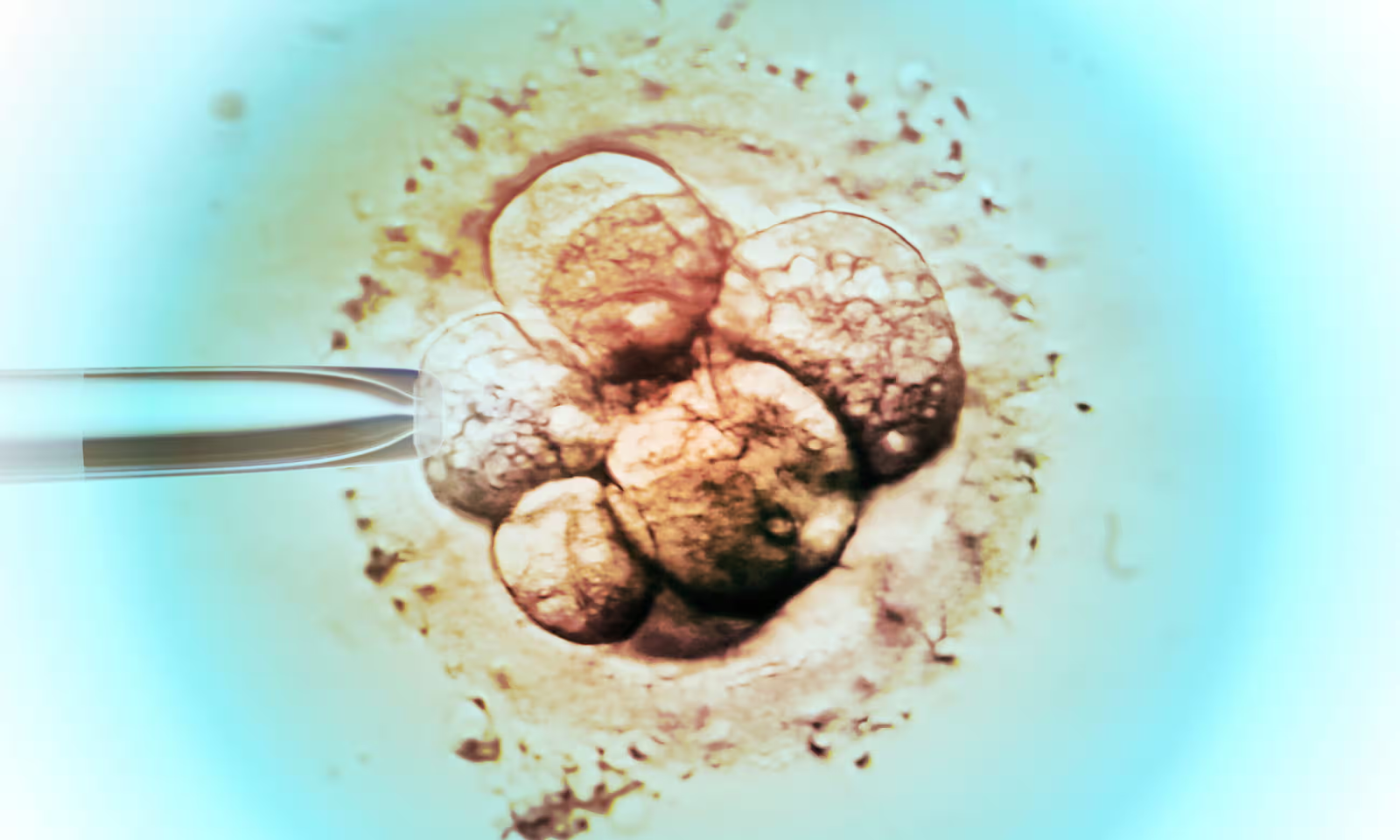What is genomic prediction and can embryos really be ‘screened for IQ’?
A startup in the US, Heliospect, appears to be preparing to launch a service to enable parents to select ‘desirable’ traits
Despite the science being unsettled, it has emerged that at least one company, the US startup Heliospect, appears to be preparing to publicly launch a service that allows parents who have conceived several embryos through IVF to select those most likely to have “desirable” traits, such as height and IQ.
Complex traits, such as IQ, are not determined by a single mutation, but are influenced by the tiny contributions of thousands of genes that have only become detectable with the advent of vast genetic databases, such as UK Biobank.
The testing is done by taking samples of DNA and looking for patterns. In the case of an embryo, a few cells are extracted to provide DNA results, which a company like Heliospect would run through its prediction algorithm.
Scientists can use the data to seek out statistical correlations between genes and a person’s educational attainment (sometimes used as an IQ proxy), risk of psychiatric disorders and a whole host of other traits.
The genetic contributions can be summed up to give a so-called polygenic score. But these scores are based on probability, rather than being a guarantee. Environmental and random biological variation also play a role. An embryo with a mediocre score could turn out to be a genius, and vice versa.
And, in the wider context of society, access to healthcare, education, and a supportive family environment can have as large an impact as inherited traits.
The company appears to have suggested that couples who use their service might expect to have a child who is, on average, six IQ points smarter than the child they would have had through natural conception. This is significantly higher than the 2.5 IQ point expected gain estimated in a 2019 study, that considered this hypothetical scenario. The validity of Heliospect’s claim is impossible to establish, although independent experts have expressed scepticism.
One issue is that genes linked to good parenting – genes that are also passed on to children – also contribute to academic outcomes. But these genes benefit a child by helping provide a kind, nurturing home environment rather than by directly making them smarter.
Prof Hank Greely, of Stanford University in California, said he didn’t believe that studies to date demonstrate an ability to make genetic predictions of the future intelligence of embryos precisely enough to produce anything other than “trivial” gains. “My first reaction is that it’s not real,” he said.
Even accepting the claimed six IQ point gain, this assumes that 10 embryos would translate into 10 viable pregnancies, which is not the reality for most couples. For women, aged 18-34, the average live birth rate per embryo transferred is 33%, according to Human Fertilisation & Embryology Authority figures, and this falls to less than 10% for women over 40. There is also attrition between eggs retrieved and embryos created. Many couples do not have 10 viable embryos to chose between and, for others, this would require an unusually intensive series of IVF cycles, which is not risk free.
Beyond possible medical risks, IQ screening of embryos poses a host of broader ethical questions. Some fear the technology could lead to a Gattaca-style stratified society. The 1997 science fiction film presented a world with a genetically enhanced upper class and a naturally conceived lower class.
Supporters of polygenic screening of embryos often cite the success of animal breeding schemes as evidence for the potentially considerable benefits of trait selection. But others note that pedigree programmes can produce unexpected “ride-along” effects. In one case, in the 2010s, scientists bred so-called “superchickens”, after selecting successive generations of prolific egg layers in an effort to boost livestock productivity. But the superchickens also turned out to be incredibly aggressive. When introduced into a farmyard environment the flock descended into disarray, with some of the hens pecking each other to death. There is no guarantee that selecting for high IQ in humans would not also produce unanticipated outcomes.
International Conference on Genetics and Genomics of Diseases
Award Nomination: genetics-conferences.healthcarek.com/award-nomination/?ecategory=Awards&rcategory=Awardee
Award registration: genetics-conferences.healthcarek.com/award-registration/
For Enquiries: genetics@healthcarek.com
Get Connected Here
---------------------------------
---------------------------------

Comments
Post a Comment